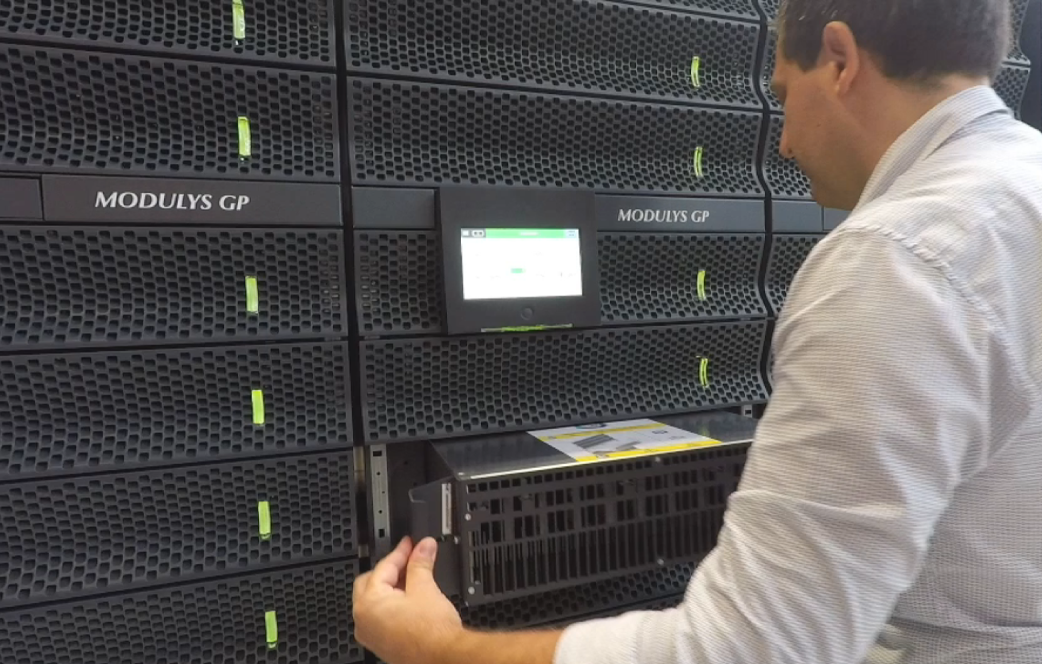Reliable and efficient IT infrastructure is the backbone of modern business. As cloud usage and data centers grow, many organizations now rely on a Hybrid IT approach, which combines cloud, edge, and traditional data center resources. Hybrid IT technology offers greater flexibility in data management and IT operations but also presents new challenges, especially when selecting and managing power components such as Uninterruptible Power Supplies (UPS). A distributor UPS data center plays a key role in providing power solutions that support the reliability of this system. This article explores the importance of a distributor UPS data center in supporting Hybrid IT infrastructure.
Hybrid IT: The Future Solution for IT Reliability
Hybrid IT enables companies to combine the benefits of cloud computing and traditional data centers into a single integrated solution. This system helps improve operational efficiency and reliability while allowing for more flexible data management. In Hybrid IT architecture, edge computing becomes a critical component, bringing data processing closer to end-users, reducing latency, and improving data access speed.
However, the success of Hybrid IT implementation relies heavily on dependable power infrastructure. Without adequate power protection, companies risk facing downtime, leading to financial losses and reputational damage. Therefore, selecting and integrating the right UPS becomes crucial to ensure continuous data center and edge site operations.
Challenges Faced by Data Centers in Hybrid IT Implementation
Hybrid IT implementation introduces new challenges that need to be addressed with appropriate solutions. Some of these challenges include:
- Selecting and Configuring Power Components: Choosing components such as UPS, PDU, and cooling devices must be done carefully to ensure compatibility and system efficiency. Mistakes in configuration can lead to issues across hundreds of different locations, especially in distributed edge computing environments.
- Remote Maintenance: Modern data centers are often spread across multiple locations without on-site IT staff. This presents challenges in maintaining and monitoring hardware remotely. UPS systems with remote monitoring capabilities provide an ideal solution to tackle this issue.
- Efficient Power Management: In Hybrid IT environments, managing power consumption efficiently is essential to keeping operational costs low. UPS solutions capable of providing real-time power management are crucial in this regard.
The Critical Role of a Distributor UPS Data Center in Hybrid IT
A distributor UPS data center is essential in ensuring that Hybrid IT infrastructure is equipped with reliable and efficient power solutions. Here’s why:
- Customized UPS Solutions: Distributors understand the specific challenges faced by businesses in implementing Hybrid IT. They can offer tailored UPS solutions for both central data centers and edge locations.
- Installation and Technical Support: Successful UPS implementation requires proper installation and continuous technical support. Experienced distributors provide professional installation services and after-sales support, including maintenance and monitoring.
- Efficient Power Management: UPS distributors help companies manage their power consumption efficiently by selecting energy-efficient devices. Distributors can also provide remote power monitoring solutions that are critical for distributed data center operations.
- Integrated Monitoring Systems: Modern UPS systems come with real-time monitoring capabilities, allowing data center managers to constantly monitor the performance of the devices. A reliable distributor will provide user-friendly monitoring solutions that integrate well with existing IT infrastructure.
Benefits of UPS in Hybrid IT Infrastructure
UPS offers significant benefits for maintaining the continuity of data center and edge operations in Hybrid IT architecture. Key advantages include:
- Reliable Power Protection: UPS provides protection against power disturbances like voltage spikes, blackouts, and fluctuations that can damage hardware and disrupt operations.
- Emergency Backup Power: In case of power outages, UPS provides temporary power until an alternative power source like a generator is activated, preventing costly downtime.
- Flexible Power Management: Modern UPS systems come with power management technology that allows for efficient power consumption control, helping businesses reduce operational costs without compromising reliability.
- Remote Power Monitoring: The latest UPS solutions come with remote monitoring capabilities, enabling IT managers to keep track of device performance from anywhere at any time.
Latest UPS Technologies for Hybrid IT
UPS technology is continuously evolving to meet the growing demands of complex Hybrid IT infrastructure. Some of the latest technologies available include:
- Modular UPS: Modular UPS systems offer greater flexibility, allowing businesses to add or remove power capacity as needed. This is particularly beneficial for data centers experiencing rapid growth.
- High-Efficiency UPS Systems: New UPS solutions are designed to reduce energy consumption while maintaining high reliability, helping businesses keep operational costs low.
- Real-Time Monitoring UPS: Real-time monitoring systems allow IT managers to track the performance of their UPS systems and detect issues before they cause significant disruptions.
Conclusion
Hybrid IT infrastructure offers greater flexibility and reliability for businesses in managing IT operations. However, the success of Hybrid IT implementation depends on reliable power solutions. A distributor UPS data center, such as Climanusa, plays a critical role in providing power solutions that support the continuous operation of data centers and edge locations. By choosing the right distributor, businesses can ensure that their UPS systems always function optimally, supporting operational efficiency and reducing the risk of downtime.
At Climanusa, we understand the importance of reliable power solutions in supporting Hybrid IT infrastructure. As a leading Distributor UPS Data Center in Indonesia, we offer UPS solutions designed to support energy efficiency and ensure operational reliability. Trust Climanusa for your data center UPS needs and experience the benefits of our innovative solutions.
For more information, please click here.
–A.M.G–

